The first few times you raise a photograph in Viewfinder and ‘imprint’ it on the world, your jaw will hit the floor. At first, it seems like nothing happens at all. But shift your position just a little bit to the side, and you’ll quickly realise that somehow, the objects and structures in the image you were just holding have instantly and completely transposed themselves into the world. The photograph you were just holding is now fully realised in 3D space, and with the image’s art style intact, overwriting everything that was there before. It’s an incredible magic trick.
As a first-person puzzle game, you’ll use Viewfinder’s neat tricks to carve out several new paths within small, contained, and picturesque stages. Perhaps you’ll rotate a photograph of a wall and imprint it onto the world to create a bridge between two gaps. A photo of the sky might be used to blow a hole in a wall, creating a passage where there was none before. Each photograph has the ability to punch a destructive path through each stage, and for a while, you feel emboldened with borrowed power and your own clever thinking.
Like any magic trick however, the more you see it, the less of an impact it has. Viewfinder seems to be keenly aware of this, and in its very brisk runtime – between 1-2 hours at most to complete every mandatory and optional level – the game’s stages smartly add a number of new twists and concepts that have you thinking about the game’s world in a different way.
After playing with provided photographs, you’ll be approaching segmented images and trying to find the right vantage in the world to view the picture as a whole. You’ll gain access to a polaroid camera to create your own specific images to imprint on the world, and photocopiers to replicate them. You’ll encounter surfaces that cannot be captured or imprinted on, and devices like batteries and other contraptions needed to power the exit gateway for each stage. Portals might lead to different visual depictions of the world, and in turn, different obstacles that only exist in one realm or another.
Each puzzle mechanic feels like it’s only used a handful of times – some ideas are even used once and never seen again – with each iterating slightly on introduced concepts with each level, before the game decides to do something completely new and different. In my personal experience, the difficulty curve felt natural enough that the solution to each conundrum almost always felt straightforward in my mind. Only a few required some extended thought, and none made my brain ache, or required time away for a mental reset to overcome, as I’ve come to expect in many games of this genre – even in the optional stages.

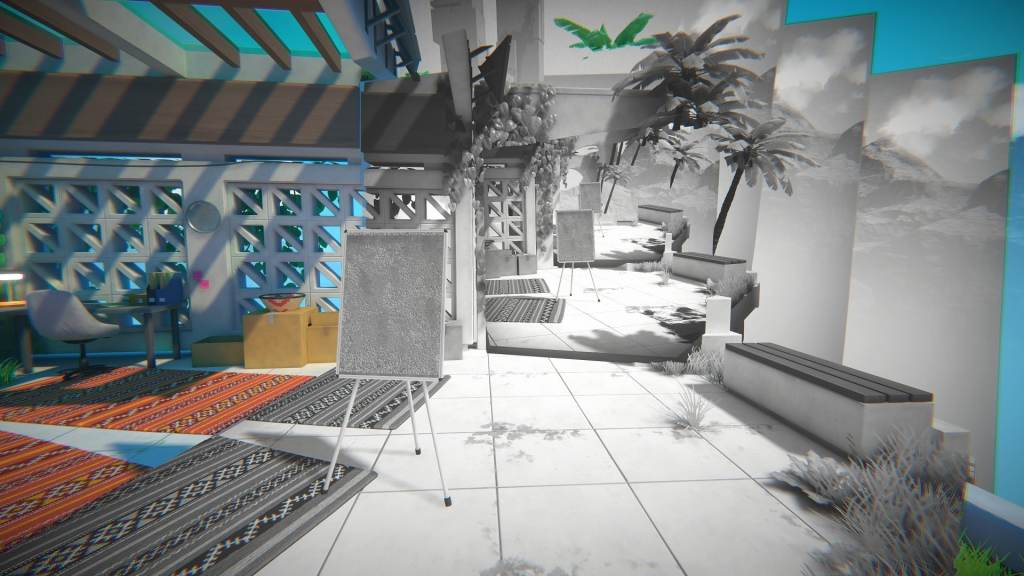

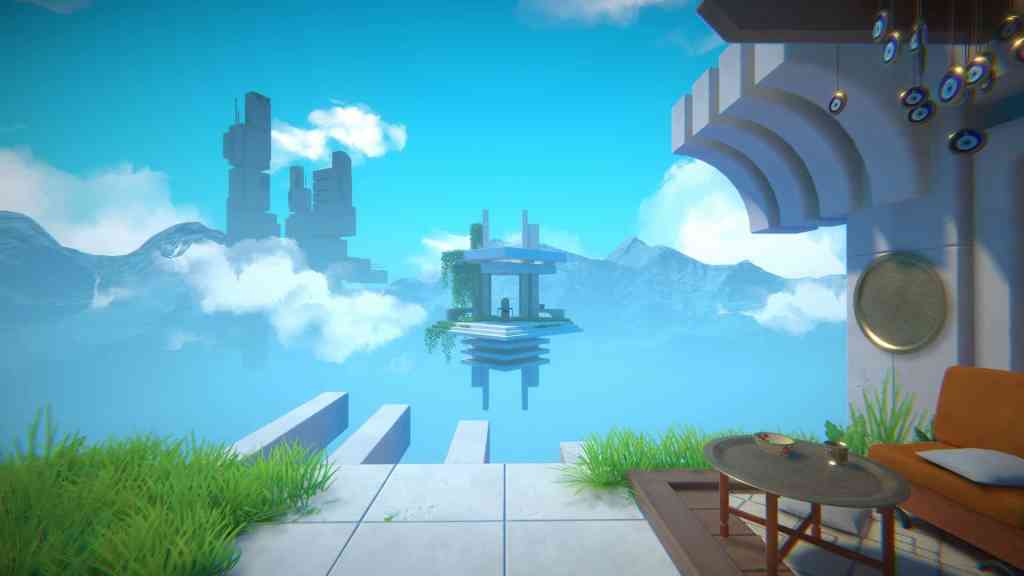
Perhaps it’s because Viewfinder’s mechanics have the potential to be so destructive and open-ended that it offers a tightly-curated exhibition of ideas. Or perhaps it was a desire for a more relaxed puzzle experience, where the joy comes from a steady flow of solutions, rather than overcoming seemingly insurmountable challenges. It works nicely in both senses. The final challenge lets you exercise all that you’ve learned up to that point in a way that allows you to impress yourself, though the smooth progression comes at the cost of wishing there was a little bit more by the time the credits roll.
The steady flow also feels like it’s in the service of another master: the narrative, which places you as a research assistant in a grim far future, ravaged by climate change. Thrust into a simulated work and living space once inhabited by a team of long-gone researchers – which sets the stage for the game’s puzzle levels – you and your colleague on the outside search for a glimmer of hope to save your barren world.
Told mainly through audio logs and typed notes you find as you explore the stages, the plot is somewhat of a curiosity, as it attempts to provide some context to the technologies used for the puzzle mechanics. The environmental dressing in many of the stages gives the world some life, but the vocal performances at times feel at odds with the otherwise zen-like quality of the world and its puzzles – your colleague in particular feels very over-the-top. Most of the expanded narrative is optional, however, and you get a good sense of the plot’s throughline and message even if you decide to simply focus on the puzzles.
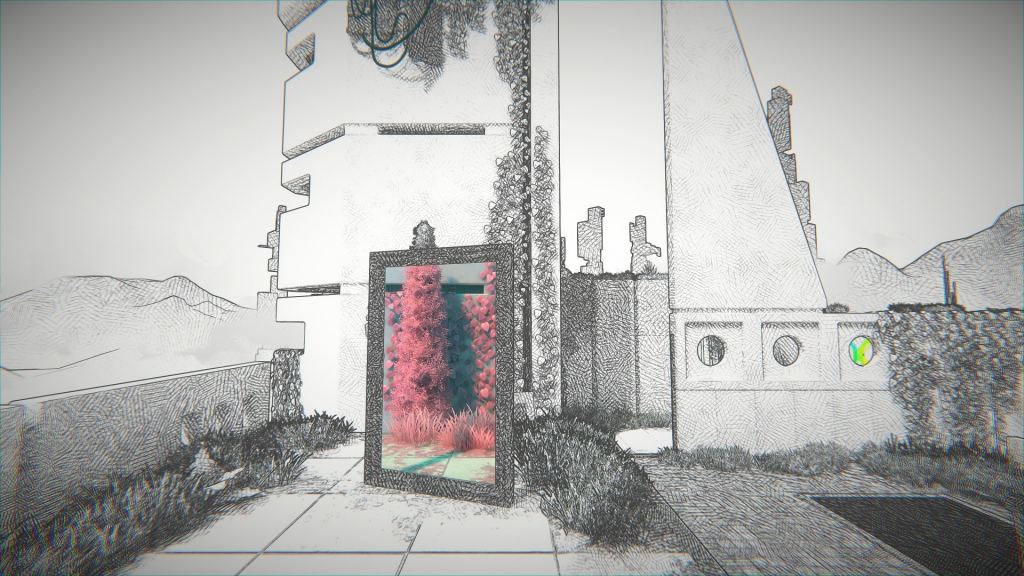
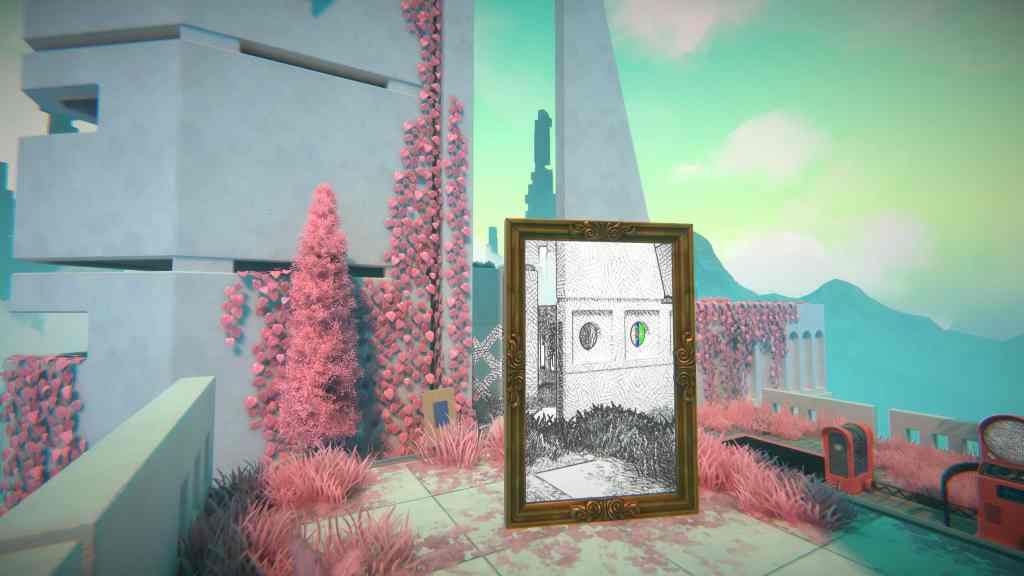
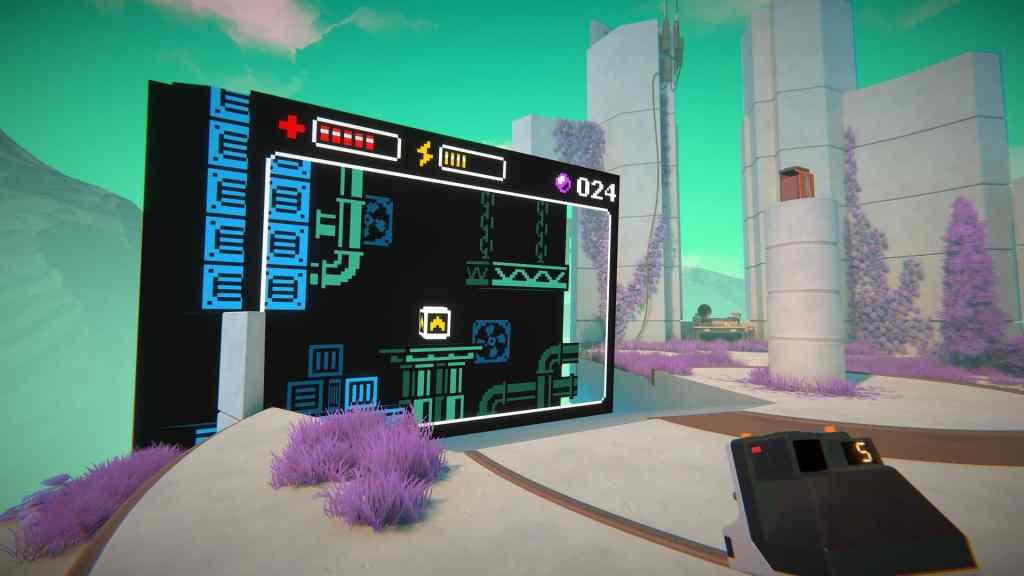
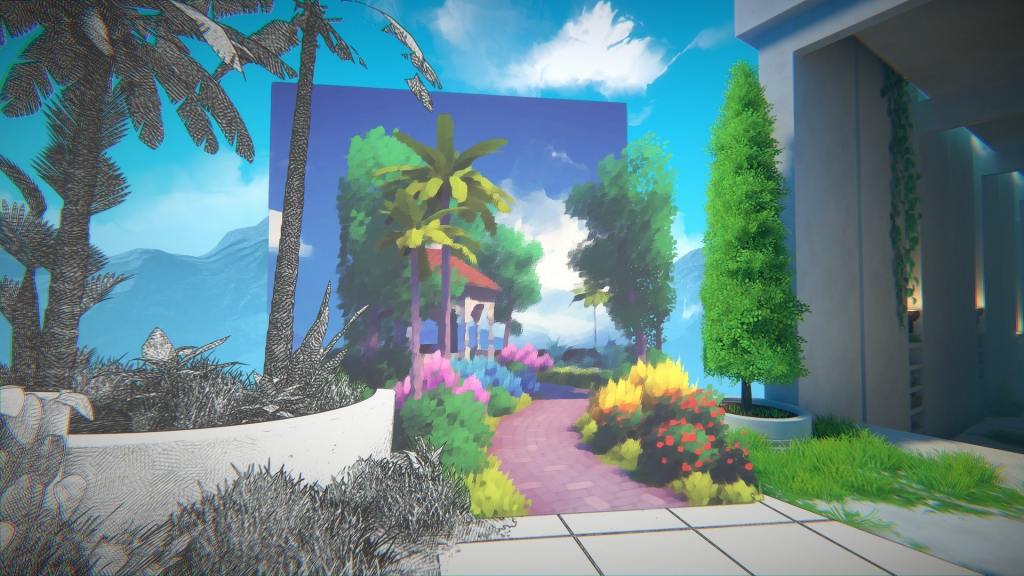
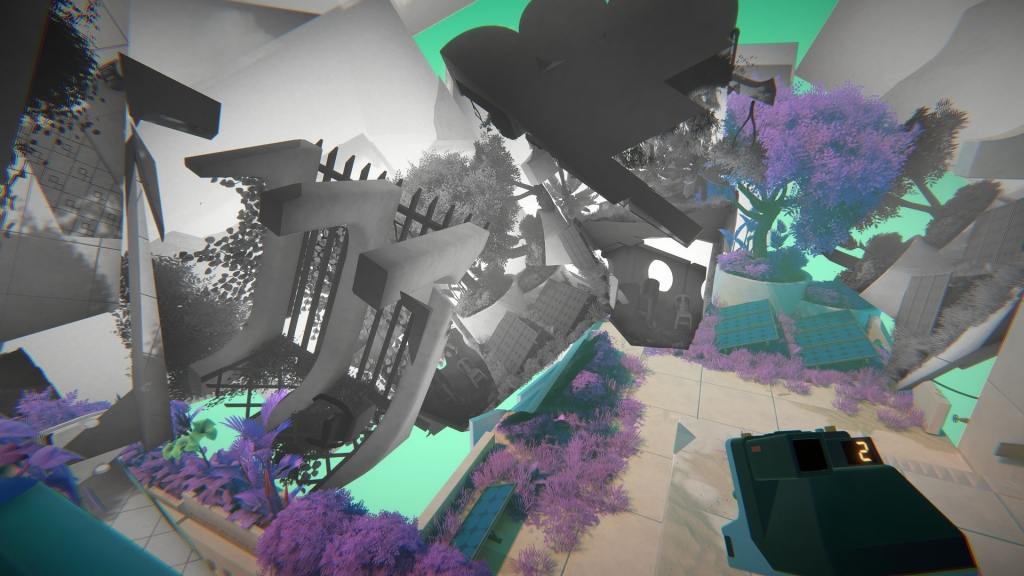
Viewfinder is a short and sharp exploration of a strong concept that builds an unimposing space to play with those ideas, and fosters a mild, continual hum of gratification as you go on that journey. A pleasant exercise in gently massaging your brain synapses, it’s like a brisk refreshment that leaves you feeling slightly more satisfied when you’re done.
Three Stars: ★★★
Viewfinder
Platforms: PC, PS5
Developer: Sad Owl Studios
Publisher: Thunderful Games
Release Date: 18 July 2023
The PS5 version of Viewfinder was provided and played for the purposes of this review.





